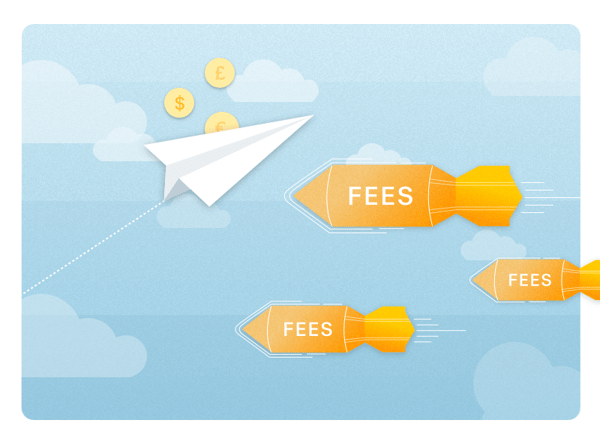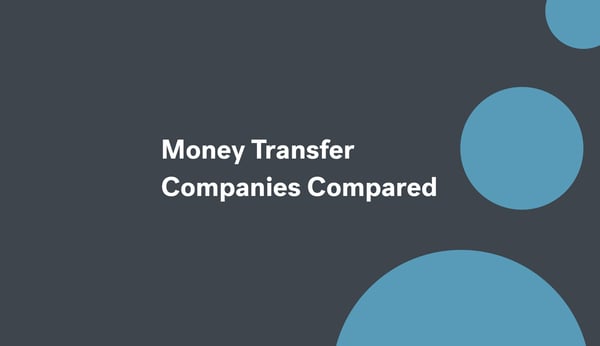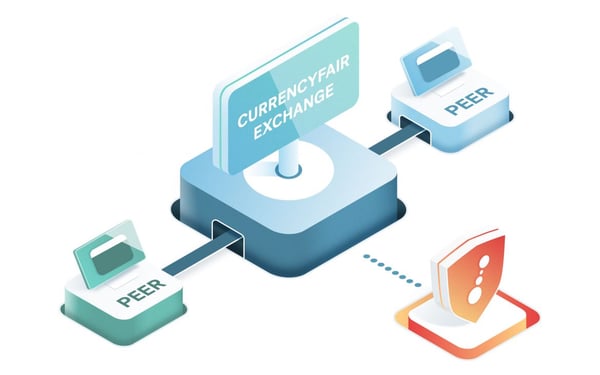Despite the events of the last couple of years, we can see that neither Brexit nor Covid-19 have lessened Brits' appetite for buying property abroad. In fact, recent data points to a rise in purchase of European properties specifically, which are up by 25% in 2020 compared with the same data in 2019. And by contrast, the same holiday home insurance data suggests a 17% decrease in UK “staycation” property purchases in 2020, compared to 2019. With more and more Brits looking to invest in a second home overseas, rather than in the UK, this article covers some key considerations for those thinking about taking the plunge into the world of international real estate.
Avoid hefty markups on exchange rates when buying or renting out overseas real estate with CurrencyFair. Our lower-margin FX rates offer bigger savings on overseas money transfers, and our world-class customer service will take care of you when you need it. 
Why invest in a property abroad?
Depending on your individual situation, there are a range of reasons why an overseas property investment might make sense at the moment:
1. Opportunities to “work from anywhere” are growing.
It looks as if remote work is here to stay, which means many employees are no longer tied to the office. Perhaps you'd prefer to work from a “home from home” in the sun, rather than stay in the UK for the whole year. But before you pick up the keys, make sure you check the visa and residency requirements in both the UK and your holiday home country. For example, if you want to remain a UK resident for tax purposes, you'll need to spend at least 183 days in the UK within each tax year.
2. A holiday home may increase your ability to travel safely.
As the Covid-19 situation continues to develop, it's unclear what the future of holidays will look like. Buying a second property in a destination you like to visit might make it easier and safer to travel back and forth. With self-catering facilities available, and no exposure to other holidaymakers and hotel staff, you and your family can isolate in your own environment if needed.
3. Buying a property abroad could make an attractive investment opportunity.
Finally, investing in property outside the UK could prove lucrative if you plan your purchase well. Whether you're thinking of using the holiday home as a rental income, or are considering investing in a location where the market is on the rise, make sure you cover any potential negative implications before you sign on the dotted line. We've compiled a roundup of some such considerations.
What to consider when buying a property abroad:
Types of investments
Your first decision to make is what the property is going to be used for. Will it be a part-time holiday home for you and your family? Or a holiday home for you that you rent out at certain times of the year? Or a property that you let locals? Each option will have different repercussions, in terms of tax and potential for yield, and we'll cover some of these later in the article.
If you're considering a holiday home in Europe, bear in mind that now that the UK has left the European Union, British citizens no longer hold the automatic right to reside there. You can only remain for a period of three months at a time - staying longer than this will require a visa. If you're of retirement age, you might want to check out our other article to cover residency and more. Check out our guide to planning your retirement outside the UK.
And note that some popular second home destinations, including parts of Spain and the Canary Islands, require you to have a special licence if you want to rent your property out rather than use it exclusively as a holiday home. And many countries, such as the Czech Republic and Thailand, have rules restricting or preventing foreigners from buying property or land.
The type of investment will also impact the legal ramifications of your purchase, for which you should hire an independent lawyer to support you. Make sure your representative is fluent in both English and the local language, and has no connection to any developer or agent you're working with. And most importantly, they should have a solid understanding of property law in that country - especially how it relates to non-residents.
Property and mortgage costs
Budget will also play a huge role in your decision-making around where and what to buy. If you prefer to purchase the property outright, this may be more possible in locations where prices are low. For example, in Turkey, a 100 sqm property costs £35,000.
Consider that acquiring a mortgage for a property abroad can be even more complex than applying for one in the UK. For starters, you'll have to decide whether to borrow with a UK bank or one in the country you're buying in. You may also have to pay a bigger deposit - it's common for British buyers to pay a 30-40% deposit on properties in Spain, for example.
And remember that when paying a large amount of money in a different currency, you should consider how you will make the transfer. Using an FX provider helps you avoid unfavourable exchange rates and high transfer fees - transferring with CurrencyFair, for example, is eight times less expensive than using your bank.
Tax implications of buying property abroad
Buying a property abroad comes with varied legislation and tax obligations, depending on the country.
If you're letting the property out, you may have to pay tax on rental income. International agreements known as double taxation treaties are in place between the UK and other specific countries, to make sure that you don't pay the same tax twice. For example, Morocco has a double taxation agreement with the UK. Rental income tax there is 10.7%, and according to Property Investor Today in April 2020, landlords typically yield 5.52%. Closer to home, buying a property in France is more expensive and you will pay 10% in rental income tax, while Property Investor Today's April 2020 article states you'd see an average yield of 2.79%. But despite the lower yield, you might prefer the convenience of being able to hop over the Channel to your place in the sun. In The United Arab Emirates, there's no tax on rental income, which might make it an attractive prospect for foreign buy-to-let property hunters.
You should also consider what will happen when you sell the property, as you will likely have to pay capital gains tax if it's not your main home. Depending on your residency status, you will either need to pay this in the UK or in your “holiday home” country, and you could end up paying tax twice (though you may be able to claim relief in this scenario).
Other costs
If you're going to be spending significant periods of time in your holiday home, consider how costs of living compare with the UK. Think about expenses related to food shopping, eating out, utilities and transport. And check whether you'll be liable to pay the equivalent of council tax.
If you're planning on renting out your property abroad, you should also factor in maintenance and cleaning costs, and build in a contingency in case you need to make trips back and forth to resolve any issues that may arise.
When property investments go wrong
As with any investment, it's possible to lose money on your holiday home. Just like in the UK, house prices abroad can move down as well as up, leaving Brits out of pocket and potentially with foreign debts to settle. And there's no doubt that there are more risks involved in overseas property investment, than with a local purchase. There are countless cautionary tales out there, from Brits who bought a home “off-plan” overseas, only to discover down the line that the property developers never intended to actually build the development. Or those hit with unexpected exchange rate changes, making their property or mortgage repayments unaffordable overnight. Or Brits planning to renovate a property abroad, faced with extortionate repair costs due to something lost in translation.
There are lots of favourable real estate opportunities abroad. The biggest mistake investors make is rushing into a decision too quickly. Make sure you do your homework and seek legal support, before committing to your pad in paradise.
In making these kinds of large payments across borders and currencies, huge amounts can be lost to hidden fees. At up to eight times cheaper than a typical bank, CurrencyFair's safe, reliable service will save you money, leaving you with more cash to spend on furnishing your new overseas property.
Disclaimer: This article is for general information purposes only and does not take into account your personal circumstances. This is not investment advice or an inducement to trade. The information shared is for illustrative purposes only and may not reflect current prices or offers from CurrencyFair. Clients are solely responsible for determining whether trading or a particular transaction is suitable. We recommend you seek independent financial advice and ensure you fully understand the risks involved before trading. Leveraged trading is high risk and not suitable for all. Losses can exceed investments. Opinions are the authors; not necessarily that of CurrencyFair or any of its affiliates, subsidiaries, officers or directors.
Photo by Filip Urban on Unsplash

.jpg?width=1170&name=Blog%20post%20size%20(1).jpg)










